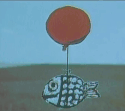|
Nessus posted:The Vatican as a nation-state is actually much younger than the USA, although the Roman Catholic Church is of course much older. The modern conception of the state did not burst upon the world like Athena from Zeus's brow my brother the status ecclesiasticus began in 756
|
|
|
|

|
| # ? Jun 4, 2024 17:11 |
|
BalloonFish posted:But in terms of institutions with continuity of power the Spanish monarchy only goes back to 1975. The current political iteration of the French state only dates to 1958. Germany has only existed in its current political and geographic form since 1991 and so on. you're confusing states and institutions again the Federal Republic of Germany in its current form was founded 1949, and if simple geographical changes are enough for discontinuity, the USA were founded in 1946, when they lost the Philippines this is of course silly
|
|
|
KYOON GRIFFEY JR posted:my brother the status ecclesiasticus began in 756
|
|
|
|
|
United States as the Founding Fathers saw it - a republic of white, slave-owning males - no longer exists.
|
|
|
|
I always enjoy your excellent naval posts, looking at Bligh's bio, it seems that being among the most famous mutineered commanders of all time didn't hurt his career much, as he made admiral, served as the governor of NSW, and so on. So what was the contemporary reaction to the event among his peers and naval leadership?
|
|
|
|
Libluini posted:you're confusing states and institutions again And even then there's a huge amount of continuity between the BRD and earlier German governments. You can really see this in things like laws, where big chunks got carried over from the Kaiserreich into the German Reich and into the Hitler years. Obviously there is a lot of change, especially when you get into the excesses and atrocities of National Socialism, but if you're talking the kind of boring every day laws like how patents are handled or property disputes adjudicated there's just a ton of poo poo that is basically the same set or rules carried forward. Likewise for France through all its 18/19th century revolutions and changes in government. To use just one example of an institution that has weathered many governments, the German Reichstag dates from 1866 when it was formed to be the representative body of the North German Confederation. It's certainly had a checkered history in the ~150 years since then, but it's worth noting that the legal basis for even something as outrageous as the Nuremberg Race Laws was legislative enactment by the Reichstag, puppet that it may have been by 1935.
|
|
|
|
MikeC posted:The rank and file are in no position to tell if their commanders who made real decisions were competent or incompetent. Orders for regiments to move forward into an ill-conceived attack or to stick around for a forlorn defence are made at levels so far removed from the common private that you wouldn't even really know who to shoot. Most of the time the blame fell on the commanding general or his immediate subordinates and they wasn't really standing around in the line of battle where you could cap him unnoticed. Everyone else from brigadier on down usually just followed orders and after the first few volleys there was too much smoke to tell what the hell was going on. If a regiment or brigade is told to advance, the colonel or brigadier goes and orders his men to advance. If they are told to hold a position they deploy their men into line of battle where they are told. Its not exactly their call to make. If they were complacent and their men weren't well drilled enough to execute the basic maneuver then they would get canned by their superiors well before you got around to capping him yourself. Same thing if they were insubordinately slow with acting on orders that put their unit in a dangerous position or left another unit in a dangerous position by not being where they were supposed to be. They may not be able to tell actual competence in terms of following commands from above, but if you think common soldiers can't tell when a CO is inept or bad at his job beyond that metric, you are wrong.
|
|
|
|
zoux posted:I always enjoy your excellent naval posts, looking at Bligh's bio, it seems that being among the most famous mutineered commanders of all time didn't hurt his career much, as he made admiral, served as the governor of NSW, and so on. So what was the contemporary reaction to the event among his peers and naval leadership? The court martial that examined the loss of the Bounty exonerated Bligh, so in pure professional terms it was not much of a wrinkle on his reputation. His peers and superiors generally (if privately) acknowledged that the expedition had been badly-resourced and that Bligh had been dealt a bad hand and generally played it as best as anyone could be expected. It's very telling that almost as soon as the investigation into the Bounty was over he was promoted Commander, given a largely token command and was then made Post-Captain just a few weeks later and given another token command just to make up his seniority, and then he was put in charge of a second breadfruit expedition to Tahiti with two ships, both larger and better-crewed than Bounty which went off without a hitch. So the Admiralty clearly didn't think he was either a liability in command or someone who needed to be kept back from the spotlight. Whatever problems of personality or leadership he had when in command of the Bounty don't seem to have surfaced again. So either he learned from the experience or that just shows what a distinctly unhappy combination of people and circumstance the Bounty voyage was. The other two 'mutinies' ascribed to Bligh where the one onboard HMS Director, which was part of the much wider Nore mutiny. Although Director was one of the more militant ships (the crew fired on ships that were ending the strike and proceeding to sea) there is no evidence that their actions had anything to do with Bligh or his command. Shortly afterwards the Director and her crew acquitted themselves very well at the Battle of Camperdown, still under Bligh's command. The Rum Rebellion was a flashpoint as New South Wales transitioned from a remote open air prison to a governed civil colony and Bligh was specifically appointed to go in and (figuratively) bash heads together and impose discipline on behalf of the government in London. he was up against powerful vested interests and his purpose was to depose them and open up the colony for new settlement and free trade. Neither of these 'mutinies' were really due to any specific failure of leadership on Bligh's part. Again, the Rum Rebellion was investigated, Bligh's actions were condoned and he was promoted to flag rank afterwards (back-dated to before the hearing) so he clearly wasn't in disgrace with those in power. The one constant through his career seems to have been strict personal morals, a short temper and a somewhat acid tongue when that temper was up. But he could clearly be tactful enough to climb his way through the politicking of the 18th century Navy, and his professional abilities as a seaman are self-evident. BalloonFish fucked around with this message at 16:40 on Apr 3, 2024 |
|
|
|
Goon project: taking food plants to a remote island. Hopefully I can encourage the sailors to get healthier on the way!
|
|
|
|
|
Thanks for the Bligh-posting, BalloonFish. I like the feeling of him just being a regular guy who just happened to be the one There when poo poo happened. Regards the Rum Rebellion, apparently William Bligh <surname> was popular as a boy's name at the time, so he was probably liked well enough by people not in the Rum Corps or named MacArthur.
|
|
|
|
BalloonFish posted:The court martial that examined the loss of the Bounty exonerated Bligh, so in pure professional terms it was not much of a wrinkle on his reputation. His peers and superiors generally (if privately) acknowledged that the expedition had been badly-resourced and that Bligh had been dealt a bad hand and generally played it as best as anyone could be expected. It's very telling that almost as soon as the investigation into the Bounty was over he was promoted Commander, given a largely token command and was then made Post-Captain just a few weeks later and given another token command just to make up his seniority, and then he was put in charge of a second breadfruit expedition to Tahiti with two ships, both larger and better-crewed than Bounty which went off without a hitch. So the Admiralty clearly didn't think he was either a liability in command or someone who needed to be kept back from the spotlight. Most of Bligh's poor reputation comes from a couple of books written decades after the fact by people who were friends and family of Heywood. He's a pretty interesting character - he was a young son in an influential family who got a berth on bounty as a junior officer at 15. He was claimed to be one of the chief mutineers by Bligh and was eventually sentenced to hang. He got a royal pardon, got back into naval service, and was a Captain by the time the Napoleonic wars kicked off. He had a pretty long and distinguished career himself. If you read between the lines it's pretty clear his family was politically connected. My half baked two cents are, given that he greeted the ship that picked them up as rescuers, he was probably a moronic 15-16 year old who got caught up in some poo poo, chose to stay with the mutineers rather than embark on what was a likely suicidal trip across the ocean in a small vessel, and had a serious case of teenage reality check when he realized what he got caught up in. Anyways, in the 1840s (50 years after the mutiny and 10 years after Heywood was dead) a friend of his family writes a book about the Bounty that sets a lot of the tone for the popular interpretation of the mutiny today - Bligh as a tyrant, etc. There was another book written by Haywood's daughter 20 years after that that further entrenched the basic version of events that you'll get in the pop culture sources like movies etc. Basically Bligh had the ill fortune to have one of the mutineers be a young kid from a connected family, and the family and their connections spent the next half century waging a largely successful campaign to shift the public narrative and not make having a mutineer in the family something they had to be ashamed of.
|
|
|
|
Elissimpark posted:Thanks for the Bligh-posting, BalloonFish. I like the feeling of him just being a regular guy who just happened to be the one There when poo poo happened. I get the impression that Bligh had a lot of genuine admiration from the more recently-arrived colonists in NSW - he was seen as introducing 'good British order' and overturning the cartel of the Rum Corp. I have also seen the theory that Bligh was known to be a very capable sailor with a strict but effective command style, and so was deliberately given somewhat 'challenging' leadership roles like the breadfruit voyages, the Director (if it was known to have a tough crew) and the NSW governorship. If we (as I think we should) discount the Director as a broader RN problem then the Bounty was his only real command failure across a long career as an an officer and commander in a long string of ships including half a dozen ships of the line, several voyages of exploration and three major fleet battles. I suspect that once you have a dramatic incident like the Bounty to your name, contemporaries and historians will pour over your record looking for incidents, statements or evidence of personality flaws and suddenly things like the Director taking part in the Nore mutiny or the Rum Rebellion take on a significance they don't really deserve and wouldn't have if they had happened to another officer. It also has to be said that the 'pop culture' version of Bligh as the tyrannical flog-happy despot emerged in the 1830s thanks to versions of the incident published by the Heywood family, a member of which had been one of Bounty's Temporary Midshipmen and who they felt Bligh (and Edwards - the captain sent to round up the mutineers) had been condemnatory about. Bligh named Heywood as one of the ringleaders but other evidence was mixed. In any case, he was only 15 when the mutiny took place, was positively keen to be taken off Tahiti by the Pandora and he had his conviction overturned by royal pardon. That was because he came from a very well-established and well-connected naval family, who made it something of a family mission to misrepresent Bligh and his behaviour as much as possible (it should be noted that Bligh achieved his professional success without such connections, family ties or patronage. He came from relatively humble West Country stock and came to Cook's attention for his earned reputation as a navigator). The 'conventional' version of the Bounty story is compelling and has clear right/wrong, freedom/discipline, commoners/officers divides that make a good dramatic narrative. And it basically ends 'happily', with Bligh and most of the 'loyalists' making it to safety and the mutineers escaping to Pitcairn. Which isn't the case if you chose to tell the story of Pigot and the Hermione, for instance. The Bounty story also has opportunities for exotic South Pacific scenery and topless Tahitians, which I'm sure is a non-zero part of why it's had so many film treatments. E: Beaten to the Heywood stuff. BalloonFish fucked around with this message at 17:37 on Apr 3, 2024 |
|
|
|
Kvlt! posted:hello I hope this is the right thread for this but I have received excellent reccomendations in the past from this thread regarding naval history books: can anyone reccomend a good book about American aircraft carriers? I have always been fascinated by them and would love to read about their technical history and/or people's experiences on them. Hi Kvlt! There's been a few additional books on WW2 naval warfare mentioned in the last few pages, so you might also want to check if any of those sound interesting. Shattered Sword is extremely well regarded, and I'd recommend it even though it doesn't match your question. It's a very detailed account on the Japanese carriers at Midway, and it will give you a ton of context to understand Japanese carriers when you do read about US ones.
|
|
|
|
Kvlt! posted:hello I hope this is the right thread for this but I have received excellent reccomendations in the past from this thread regarding naval history books: can anyone reccomend a good book about American aircraft carriers? I have always been fascinated by them and would love to read about their technical history and/or people's experiences on them. Also if you're also into receiving information in long form youtube video, go check out Drachinifel on youtube, he does really good stuff on all manner of boats, but the WW2 aircraft carriers are certainly well covered.
|
|
|
|
Urcinius posted:For US carrier developments before the war: like I said this thread always comes in clutch with great book recs, thank you!! I just ordered the first one and am gonna work my way through the rest
|
|
|
|
Kvlt! posted:like I said this thread always comes in clutch with great book recs, thank you!! I just ordered the first one and am gonna work my way through the rest I'm also a big fan of Friedman's US Aircraft Carriers: An Illustrated Design History. It's expensive but it gives a real feel for how quickly things changed during the axial deck period, and how hard it was to come up with good answers for the full spectrum of jet operations in the angled deck era. https://www.usni.org/press/books/us-aircraft-carriers-revised-edition
|
|
|
|
BalloonFish posted:Bligh clearly wasn't a 'people person' and a lot of his actions were well intentioned but counterproductive. He was very concerned with the health and morale of his crew (which is admirable) but his men chafed at the daily mandatory ration of sauerkraut (an experiment in warding off scurvy) and Bligh's reaction was to line up the men every day and personally ensure every one ate his ration, which was seen as humiliating. Similarly, Bligh imposed periods of 'mandatory fun' in the evenings where the men were required to dance, sing and sky-lark which was entirely counterproductive. Woof. Morale will continue until the beatings improve. But seriously thanks for the navyposting, y'all are helping to fill in the blanks for me on the stuff I've already absorbed from Aubrey-Maturin. How'd the sauerkraut experiment work out, anyway? I know ascorbic acid is pretty fragile and doesn't survive cooking, but pickling?
|
|
|
|
Phy posted:Woof. Morale will continue until the beatings improve. Sauerkraut is really high in vitamin c, the pickling process adds quite a bit to it. Pickled foods are a big part of how farmers would avoid the illness during winter.
|
|
|
|
Phy posted:Woof. Morale will continue until the beatings improve. Obviously the mutineers weren't toothless so it must of worked to some extent
|
|
|
|
Phy posted:How'd the sauerkraut experiment work out, anyway? I know ascorbic acid is pretty fragile and doesn't survive cooking, but pickling? It wasn't entirely right to call in an experiment - Cook had proven that sauerkraut worked at preventing scurvy and Bligh had seen its effectiveness first hand, which is one reason he was so keen on it. Cook didn't have a single case of scurvy in a voyage that lasted three years, which at the time was frankly miraculous. Bligh also emulated Cook's fastidious standards of shipboard and personal cleanliness, which also proved to be another source of conflict with certain people on the Bounty. But whatever other problems the voyage had, no one on it ever got scurvy. Sauerkraut is a good antiscorbutic - cabbage has good VitC content and when fermented in its own juices the effect is increased. Apparently the problem that Cook and Bligh had was that the Navy procured large quantities of sauerkraut prepared in iron cooking vessels, which gave it an unpleasant metallic taste. That's why the men had to be almost forced to eat their daily ration of the stuff, and one reason why lime juice became the preferred method. Frankly I'd have thought that "this will stop your body disintegrating into its constituent materials" would overcome some metallic-tasting cabbage portions.
|
|
|
Cyrano4747 posted:Most of Bligh's poor reputation comes from a couple of books written decades after the fact by people who were friends and family of Heywood. He's a pretty interesting character - he was a young son in an influential family who got a berth on bounty as a junior officer at 15. He was claimed to be one of the chief mutineers by Bligh and was eventually sentenced to hang. He got a royal pardon, got back into naval service, and was a Captain by the time the Napoleonic wars kicked off. He had a pretty long and distinguished career himself. If you read between the lines it's pretty clear his family was politically connected. My half baked two cents are, given that he greeted the ship that picked them up as rescuers, he was probably a moronic 15-16 year old who got caught up in some poo poo, chose to stay with the mutineers rather than embark on what was a likely suicidal trip across the ocean in a small vessel, and had a serious case of teenage reality check when he realized what he got caught up in. The funny thing is that most of what I've read from this vein puts Bligh in not that bad a light overall. The most common argument I've seen for "Bligh was the villain of the piece" versions of the Bounty mutiny make it seem like Bligh was a brilliant man under pressure and in a crisis - but could not handle situations where there was no crisis.
|
|
|
|
|
Zorak of Michigan posted:I'm also a big fan of Friedman's US Aircraft Carriers: An Illustrated Design History. It's expensive but it gives a real feel for how quickly things changed during the axial deck period, and how hard it was to come up with good answers for the full spectrum of jet operations in the angled deck era. https://www.usni.org/press/books/us-aircraft-carriers-revised-edition thank you for this!! i am a huge fan of Friedman. I got a copy of his book Fighting the Great War at Sea in an effort to learn more about ship design for a game called Rule the Waves 3, and ended up spending far more time pouring over the book than I did playing the game. I think I'm going to save up for a copy of this bad boy.
|
|
|
|
Gnoman posted:The funny thing is that most of what I've read from this vein puts Bligh in not that bad a light overall. The most common argument I've seen for "Bligh was the villain of the piece" versions of the Bounty mutiny make it seem like Bligh was a brilliant man under pressure and in a crisis - but could not handle situations where there was no crisis. Purely anecdotal but it feels like that particular personality type is common in modern tall ships. I've known at least one person who was explicitly described as "really good in a crisis, but when there wasn't a crisis he kinda bumbled around until a crisis happened (possibly BECAUSE of his bumbling) and he could swing into problem-solving mode," and met a few others would could be described that way. Possibly being in a consistently underfunded and inherently challenging industry mostly driven by hopes and dreams selects for a certain personality type.
|
|
|
|
So was the Breadfruit worth all these troubles and expeditions? I sadly donít recall ever eating it.
|
|
|
|
BalloonFish posted:It wasn't entirely right to call in an experiment - Cook had proven that sauerkraut worked at preventing scurvy and Bligh had seen its effectiveness first hand, which is one reason he was so keen on it. Cook didn't have a single case of scurvy in a voyage that lasted three years, which at the time was frankly miraculous. Bligh also emulated Cook's fastidious standards of shipboard and personal cleanliness, which also proved to be another source of conflict with certain people on the Bounty. But whatever other problems the voyage had, no one on it ever got scurvy. It's also important to note that despite knowing that certain foods and drinks prevented scurvy, the actual mechanism (vitamin C deficiency) wouldn't be known until the early 1900s. This was one of the factors that led to the Franklin expedition disaster. Franklin stocked plenty of citrus juice aboard Erebus and Terror, but couldn't know that cold weather degraded the juice's vitamin content.
|
|
|
|
It also was discovered and forgotten after ships got faster and had more regular stops so sailors could eat fresh food, so it had to be rediscovered again after arctic expeditions and people who just ate a lot of canned food wound up getting scurvy. So now people are extra aware of vitamin C and pass it off as a miracle medicine.
|
|
|
|
SlothfulCobra posted:It also was discovered and forgotten after ships got faster and had more regular stops so sailors could eat fresh food, so it had to be rediscovered again after arctic expeditions and people who just ate a lot of canned food wound up getting scurvy. Not quite. Again, vitamins and the role they play in health weren't discovered until the twentieth century, so nineteenth century medical authorities drew good faith but wrong conclusions about scurvy because they (unknowingly) didn't have enough information.
|
|
|
|
Vincent Van Goatse posted:It's also important to note that despite knowing that certain foods and drinks prevented scurvy, the actual mechanism (vitamin C deficiency) wouldn't be known until the early 1900s. This was one of the factors that led to the Franklin expedition disaster. Franklin stocked plenty of citrus juice aboard Erebus and Terror, but couldn't know that cold weather degraded the juice's vitamin content. Wasn't it the preservation method of the juice rather than the cold that hosed up the vitamin content?
|
|
|
|
Cyrano4747 posted:Wasn't it the preservation method of the juice rather than the cold that hosed up the vitamin content? Gotta plead ignorance here. I know from a quick google search that high temperatures can destroy ascorbic acid but I'm not so clear on low temperature. My instinct is a little of column A and a little of column B but do not cite me on this. My source on cold degrading vitamin C is passing references to this from Andrew Lambert's biography of Sir John Franklin. So if he's wrong, I'm wrong. Vincent Van Goatse fucked around with this message at 01:40 on Apr 4, 2024 |
|
|
|
Cyrano4747 posted:You can really see this in things like laws, where big chunks got carried over from the Kaiserreich into the German Reich and into the Hitler years. When talking about the continuity of laws I'm immediately reminded of the current Finnish criminal law, which begins with: "We Alexander the Third, by the Grace of God, Emperor and Sovereign of all of Russian land, Tsar of Polish land, Grand Duke of Finland, etc etc. Make it known:" Just how hard can it be to change the foreword of a law during the hundred years of independence.
|
|
|
|
Vincent Van Goatse posted:Gotta plead ignorance here. I know from a quick google search that high temperatures can destroy ascorbic acid but I'm not so clear on low temperature. My instinct is a little of column A and a little of column B but do not cite me on this. I'm not going to plant too firm a flag on this, but my hazy memory is that they were boiling the juice as part of the canning process to kill anything that might cause it to go bad, and that was destroying the vitamins.
|
|
|
|
Saukkis posted:When talking about the continuity of laws I'm immediately reminded of the current Finnish criminal law, which begins with: "We Alexander the Third, by the Grace of God, Emperor and Sovereign of all of Russian land, Tsar of Polish land, Grand Duke of Finland, etc etc. Make it known:" That doesn't make sense. It was Nicky II who was Tsar when Finland gained independence.
|
|
|
|
Cyrano4747 posted:I'm not going to plant too firm a flag on this, but my hazy memory is that they were boiling the juice as part of the canning process to kill anything that might cause it to go bad, and that was destroying the vitamins. I'm pretty sure this is correct. Source: I work for Big Pharma, specifically one that got its start with the first shelf-stable preparation of Vitamin C.
|
|
|
|
It also reacts with iron (and copper), so you canít store it in metal containers (like cans) unless they are well-lacquered.
|
|
|
|
Cyrano4747 posted:I'm not going to plant too firm a flag on this, but my hazy memory is that they were boiling the juice as part of the canning process to kill anything that might cause it to go bad, and that was destroying the vitamins. I'll buy this unless someone has a better source.
|
|
|
|
Cyrano4747 posted:I'm not going to plant too firm a flag on this, but my hazy memory is that they were boiling the juice as part of the canning process to kill anything that might cause it to go bad, and that was destroying the vitamins. For what it's worth (nothing) I recall my grandad who was a big American Navy buff telling this to me. Where did he get it? Who knows!
|
|
|
|
Vincent Van Goatse posted:That doesn't make sense. It was Nicky II who was Tsar when Finland gained independence. The law is from 1889.
|
|
|
|
As a food technologist professionally I can you that A) Canning involves high heat (applied after the can is sealed) B) Ascorbic acid is very vulnerable to heat Even much less intense processes can destroy the majority of vitamin C. Modern orange juice is pasteurised for risk-management reasons, and as a result they have to add ascorbic acid back in to replace what was destroyed.
|
|
|
|
Comstar posted:So was the Breadfruit worth all these troubles and expeditions? No IIRC they wanted to use it as a cheap foodstuff for slaves in the west indies since it could be grown locally and didn't compete for sugar plantation land but the slaves refused to eat it so the project was abandoned.
|
|
|
|

|
| # ? Jun 4, 2024 17:11 |
|
The Lone Badger posted:As a food technologist professionally I can you that Yeah, I keep bottles of from-concentrate lemon and lime juice on hand for cooking, and iirc they both say they're not a source of vitamin C. Wouldn't be surprised if they just don't add it back. It's definitely not in the ingredients list. BalloonFish posted:Apparently the problem that Cook and Bligh had was that the Navy procured large quantities of sauerkraut prepared in iron cooking vessels, which gave it an unpleasant metallic taste. That's why the men had to be almost forced to eat their daily ration of the stuff, and one reason why lime juice became the preferred method. I'd lay actual money that another reason is that sauerkraut tastes terrible mixed into your daily grog ration.
|
|
|





















 Yes, it's like a lava lamp.
Yes, it's like a lava lamp.



















